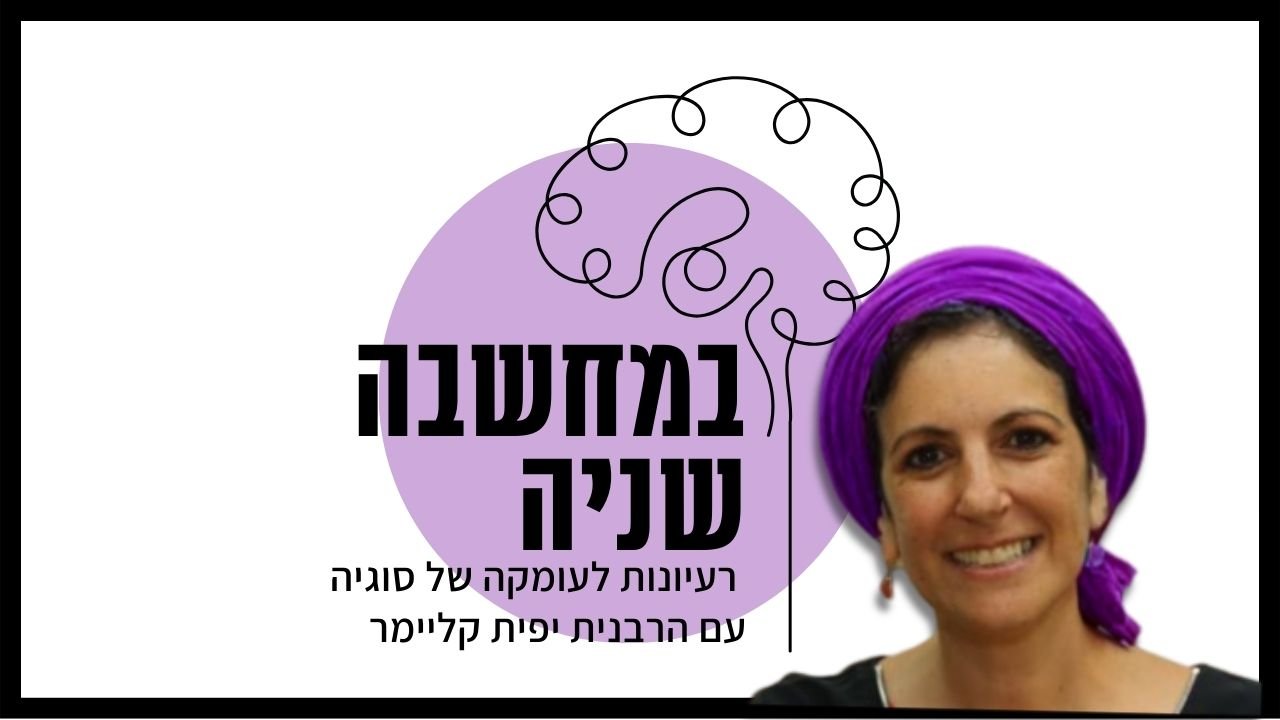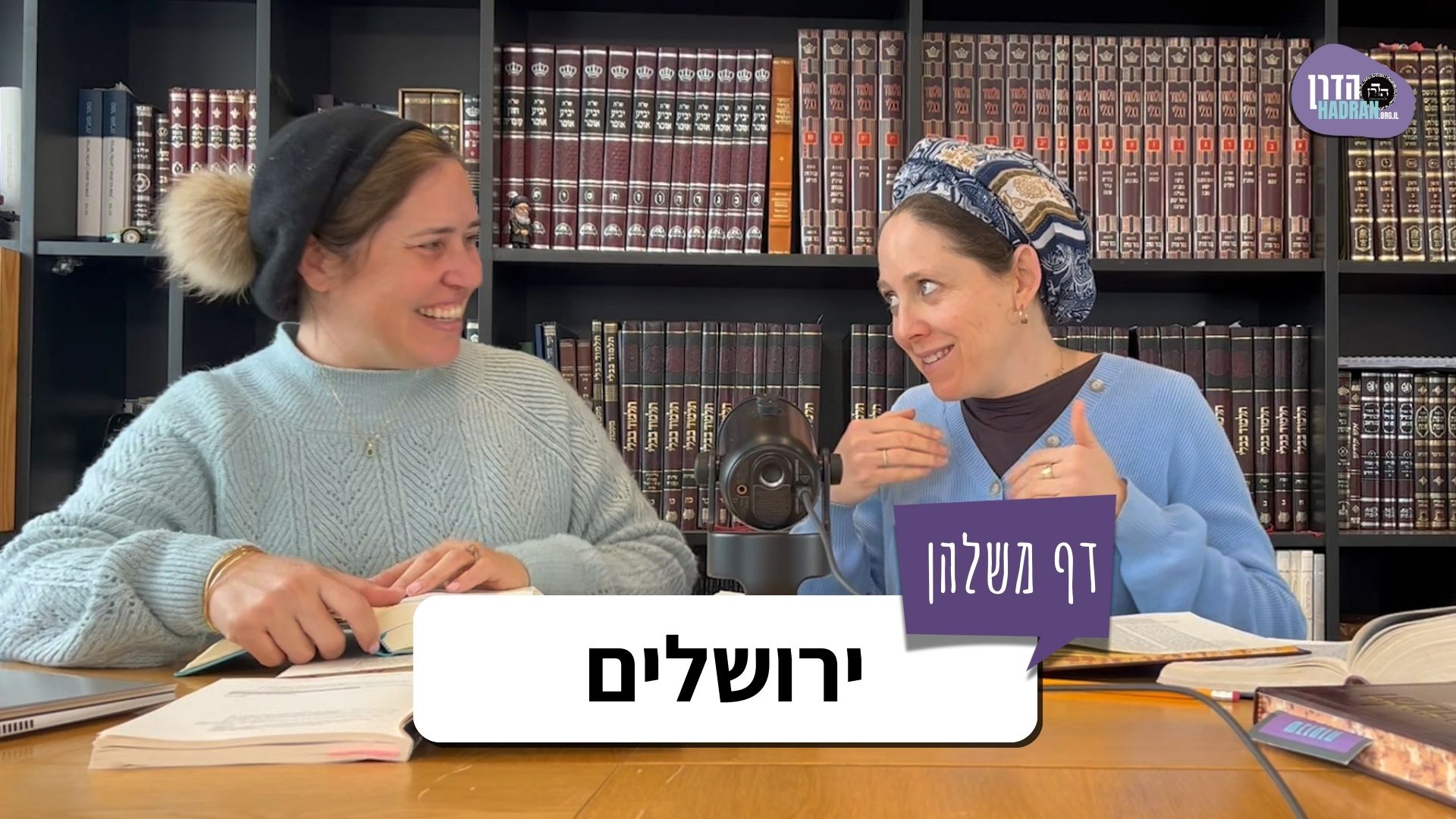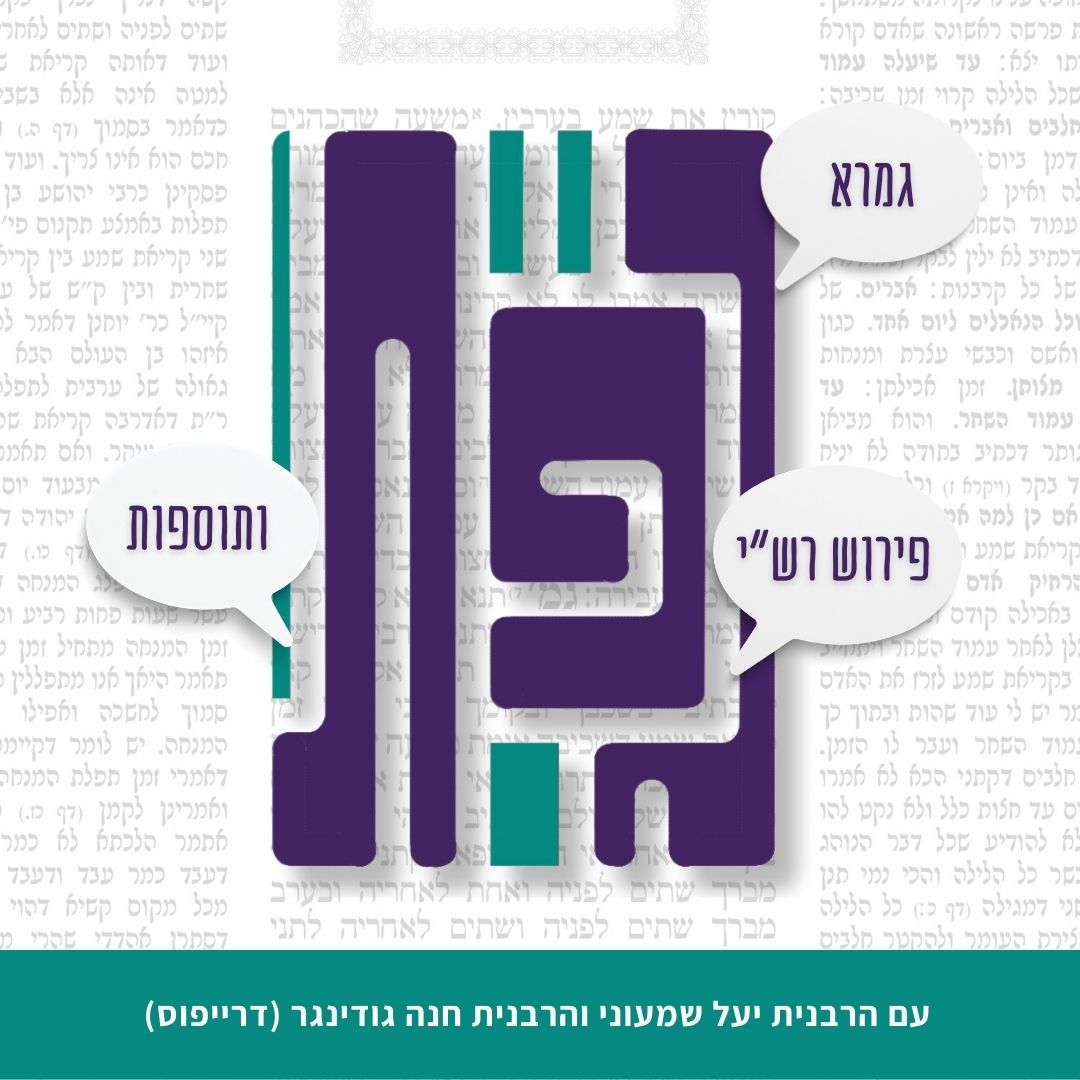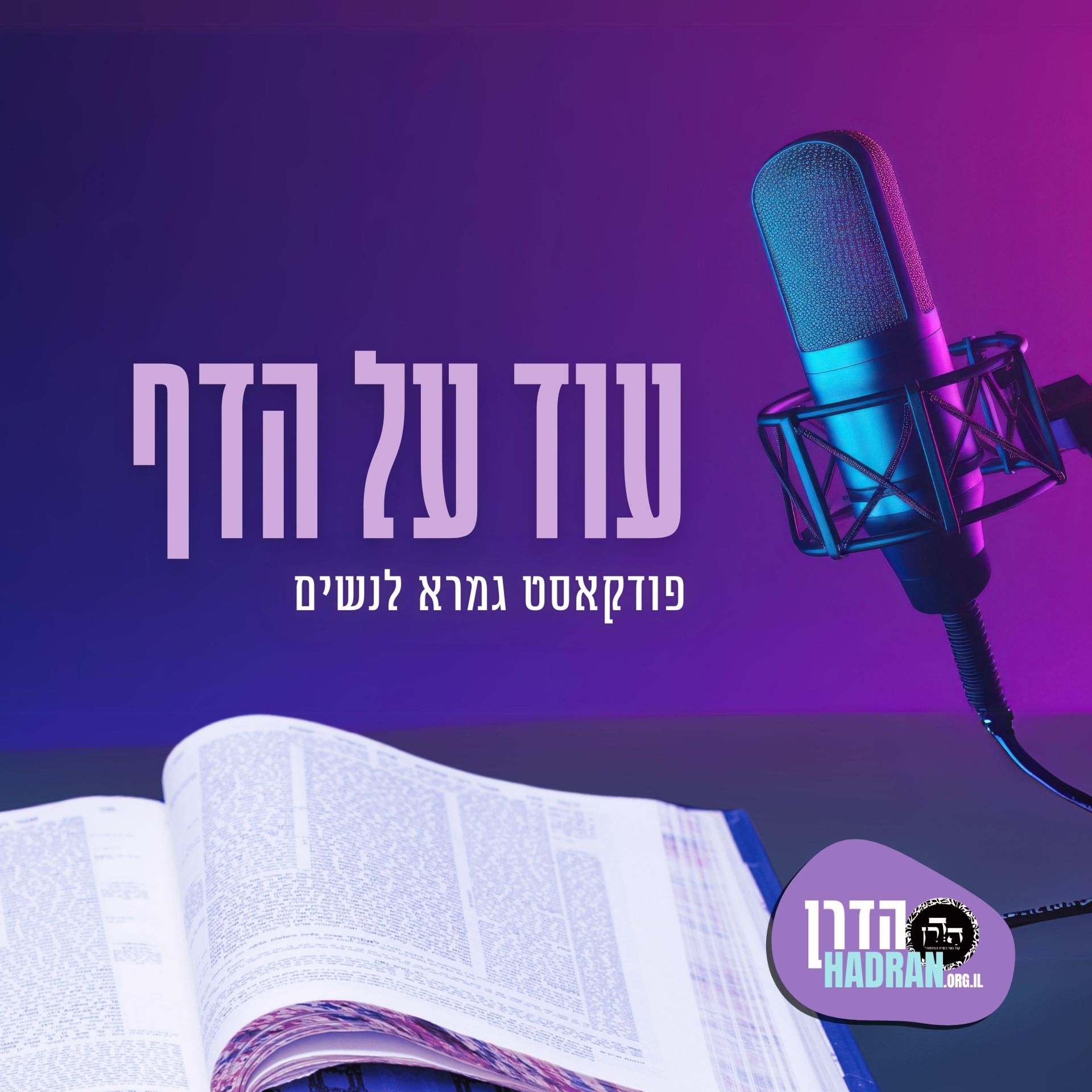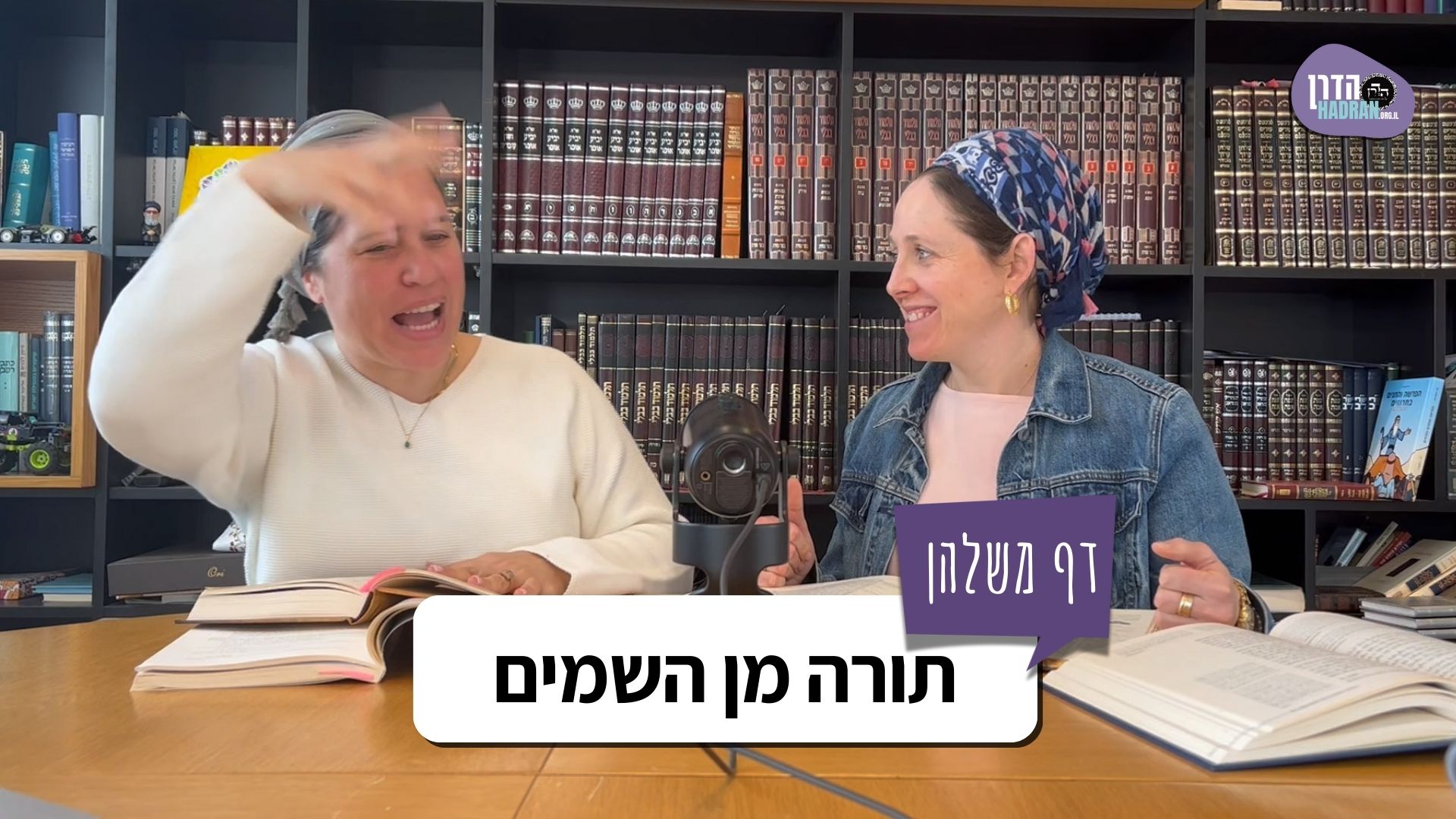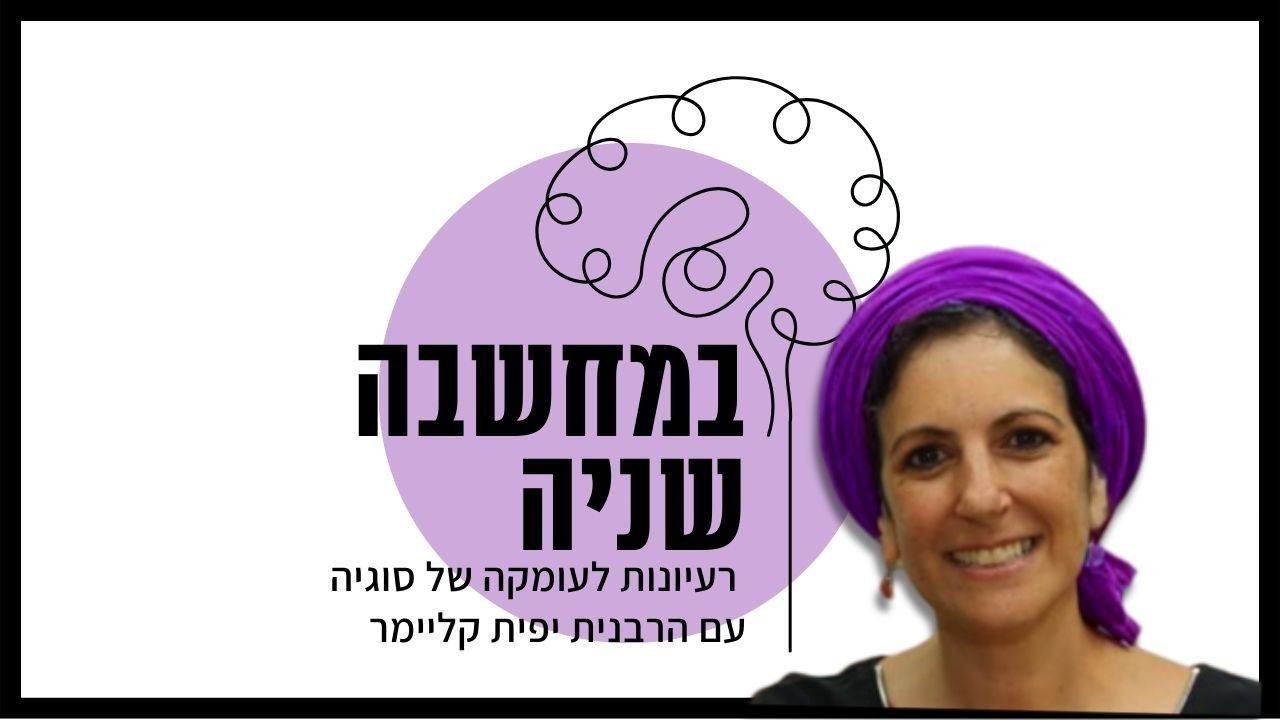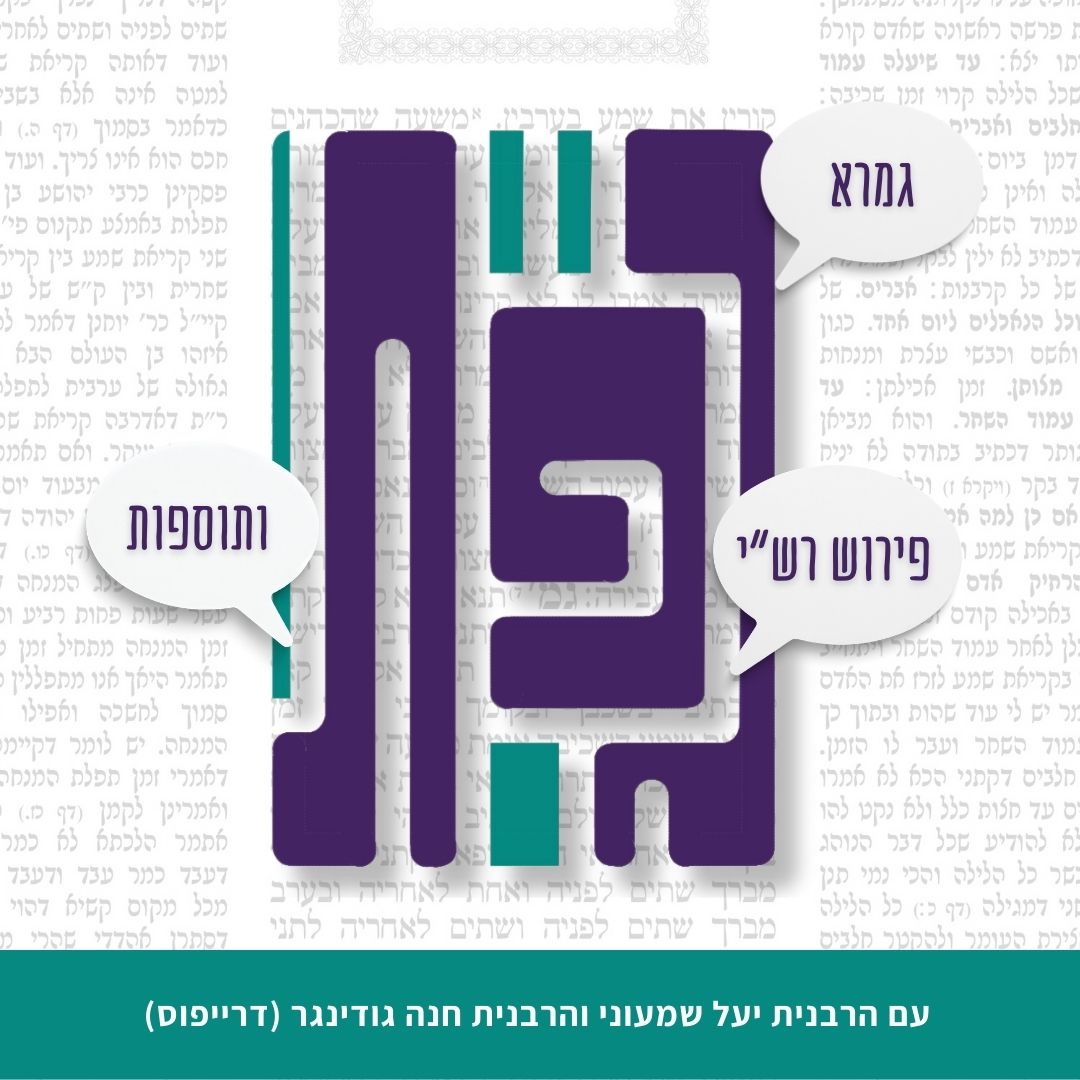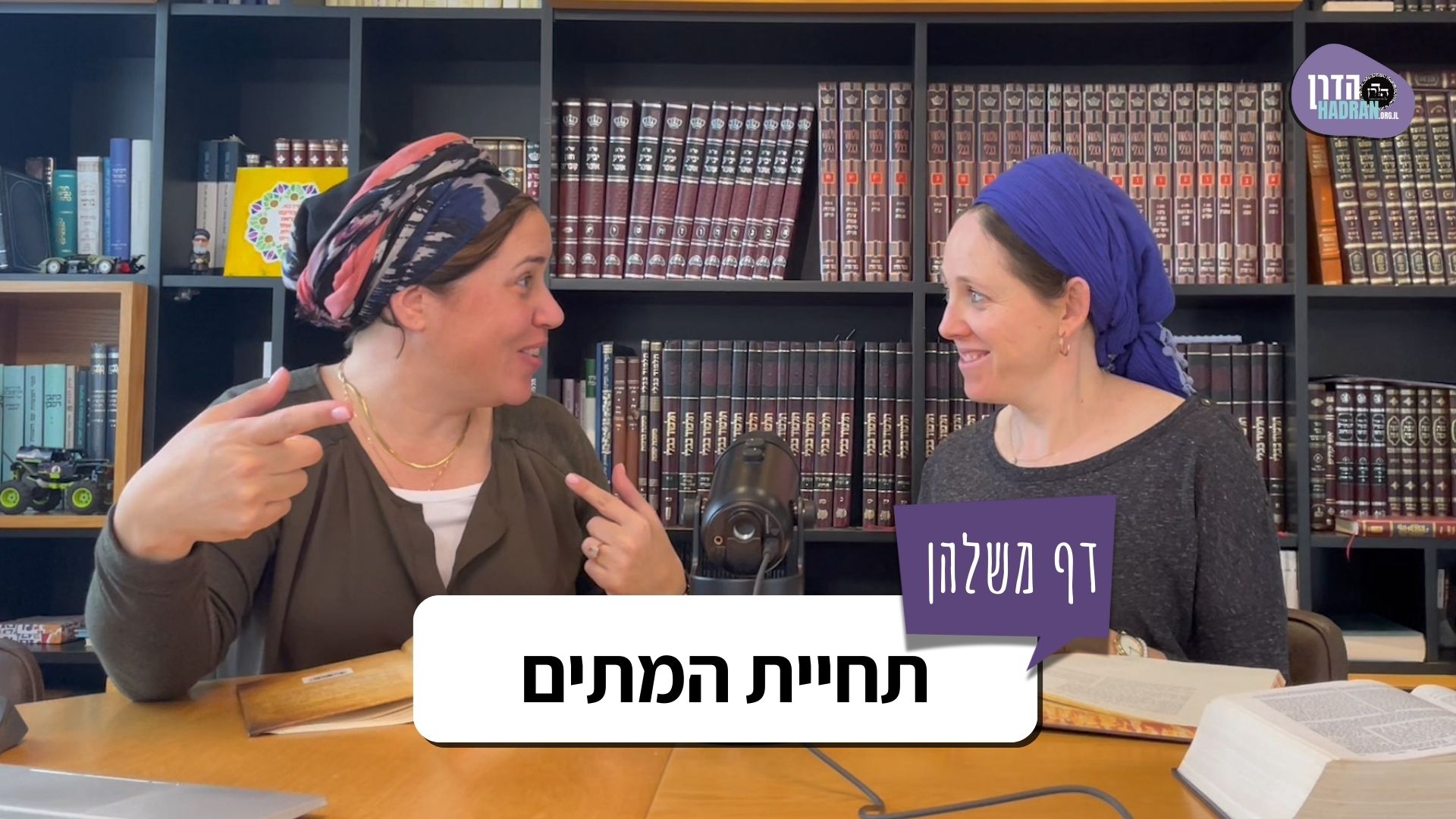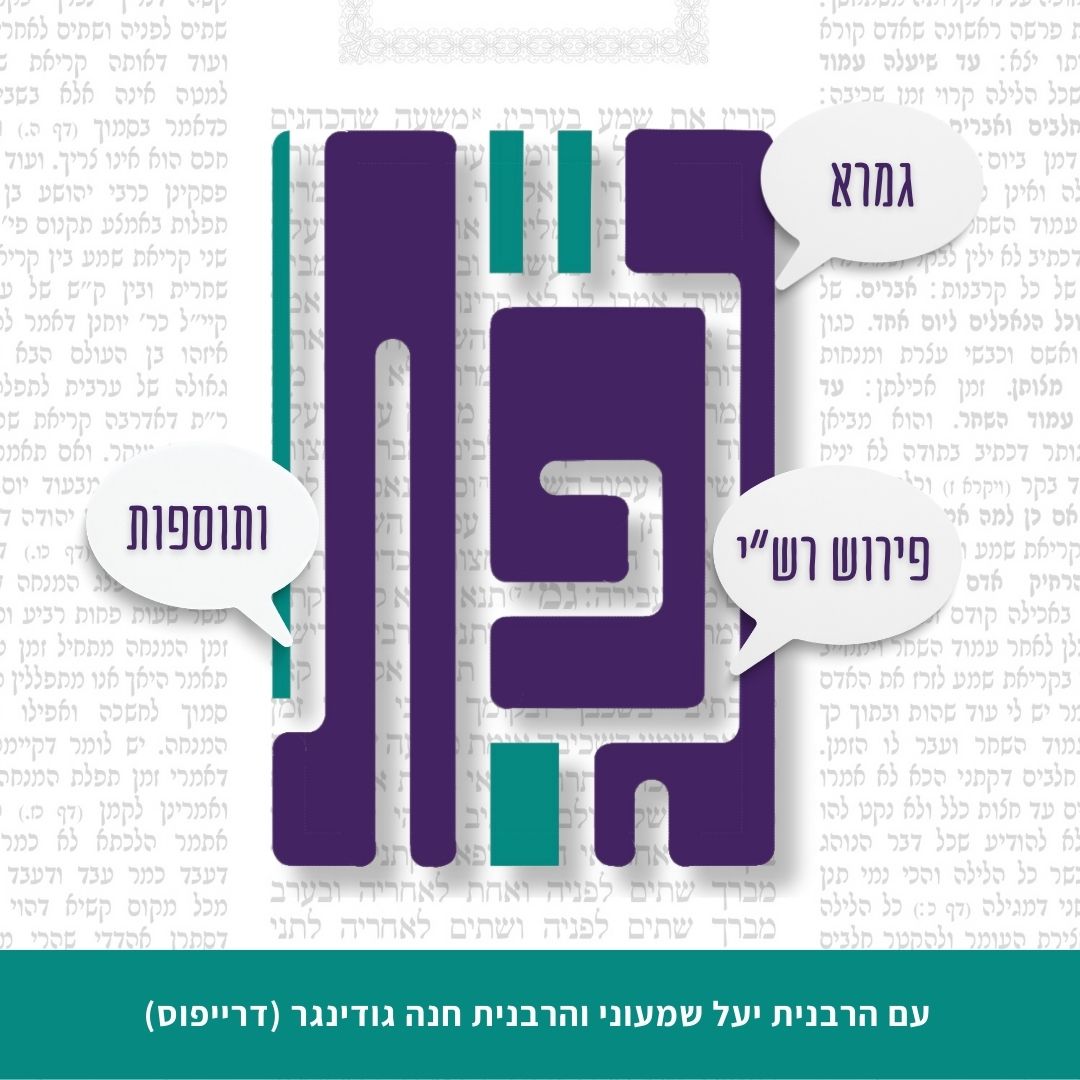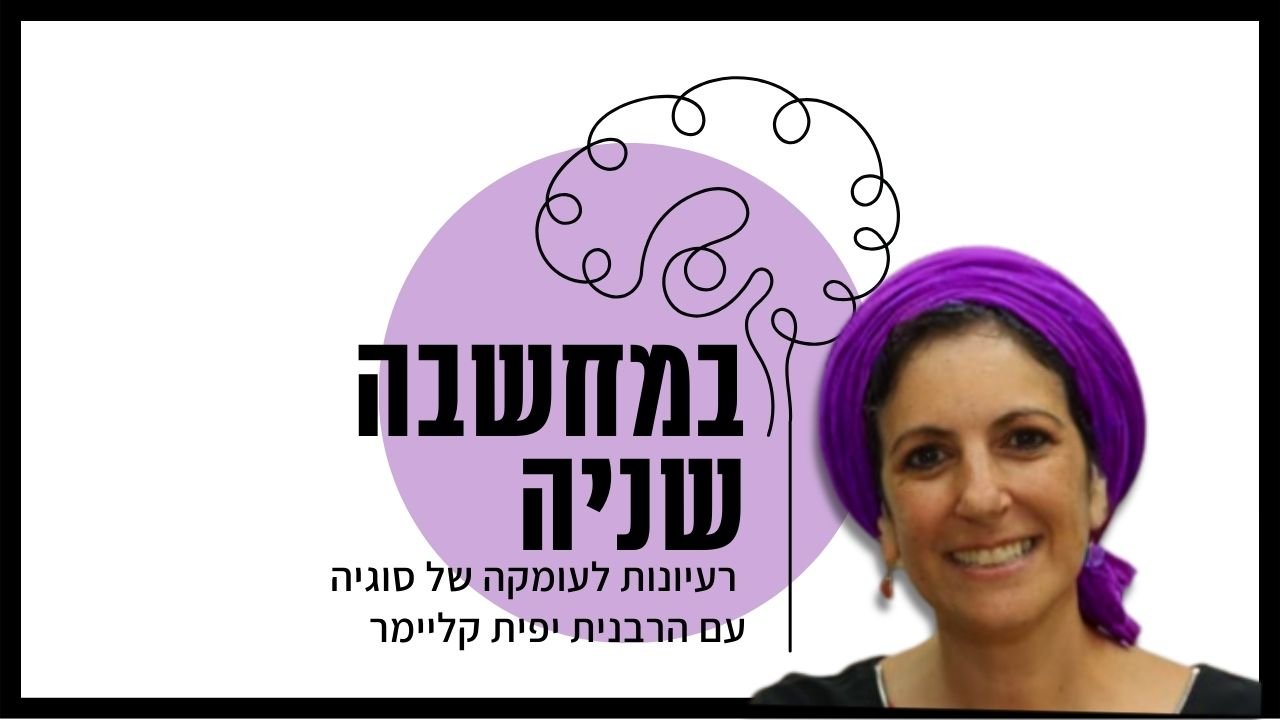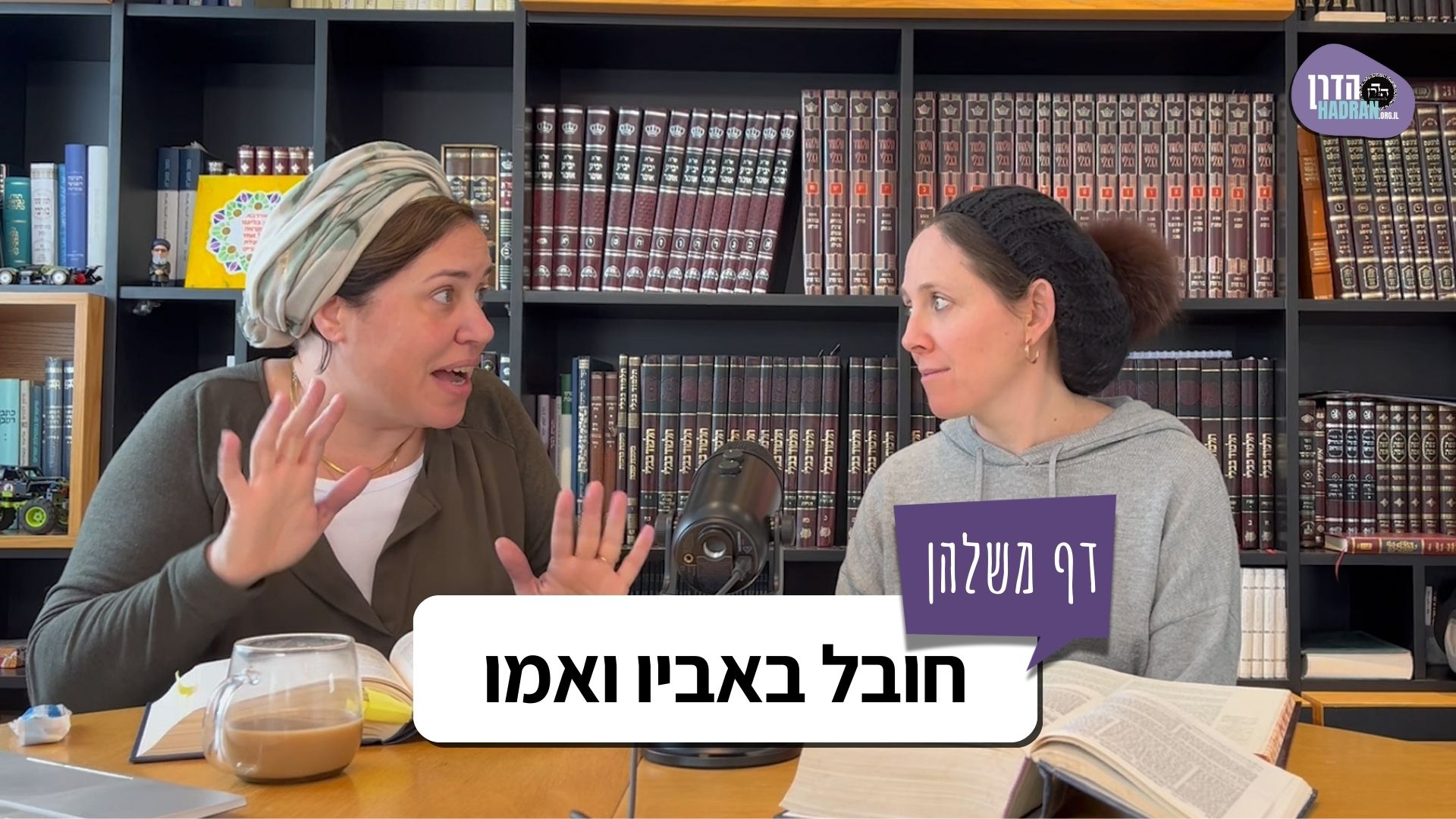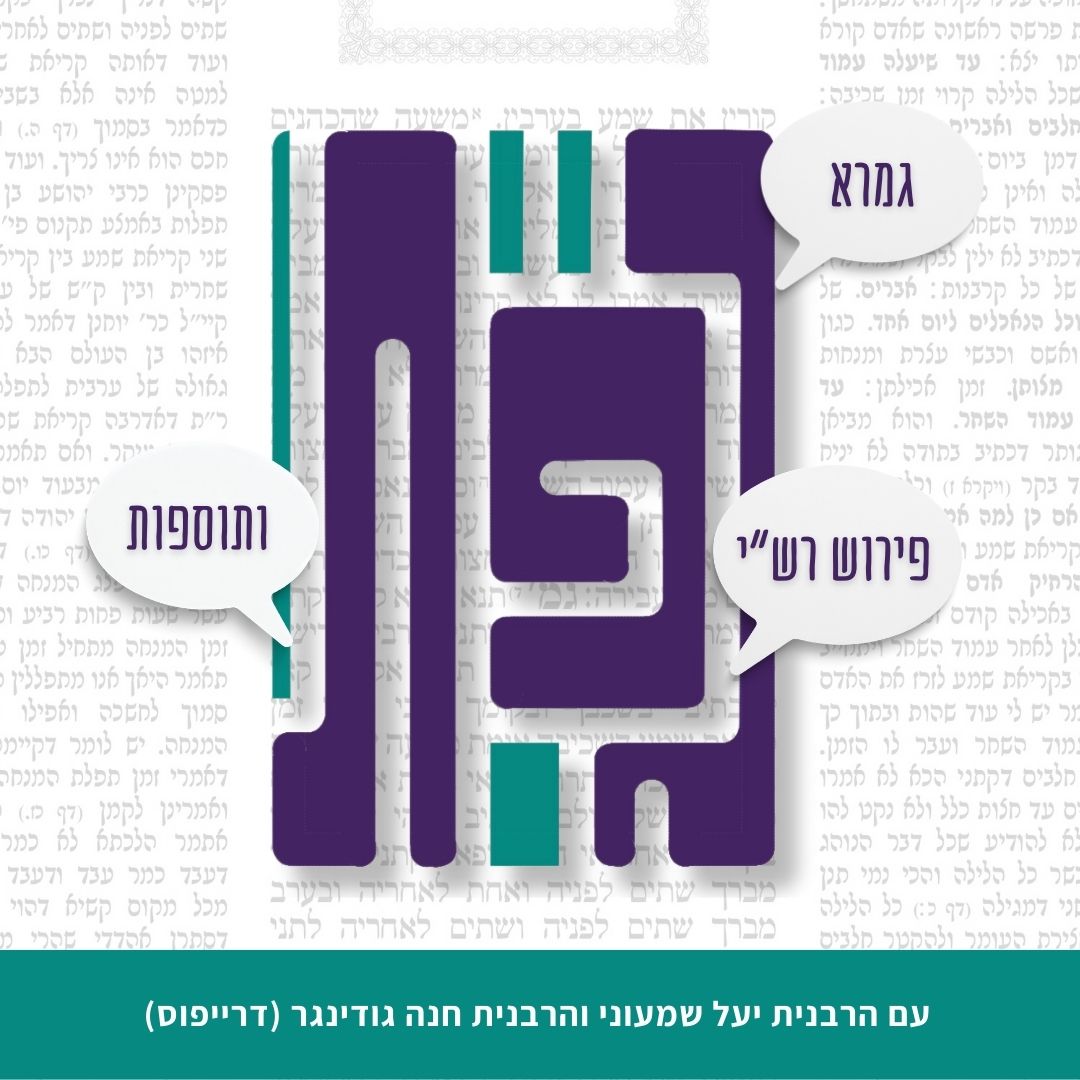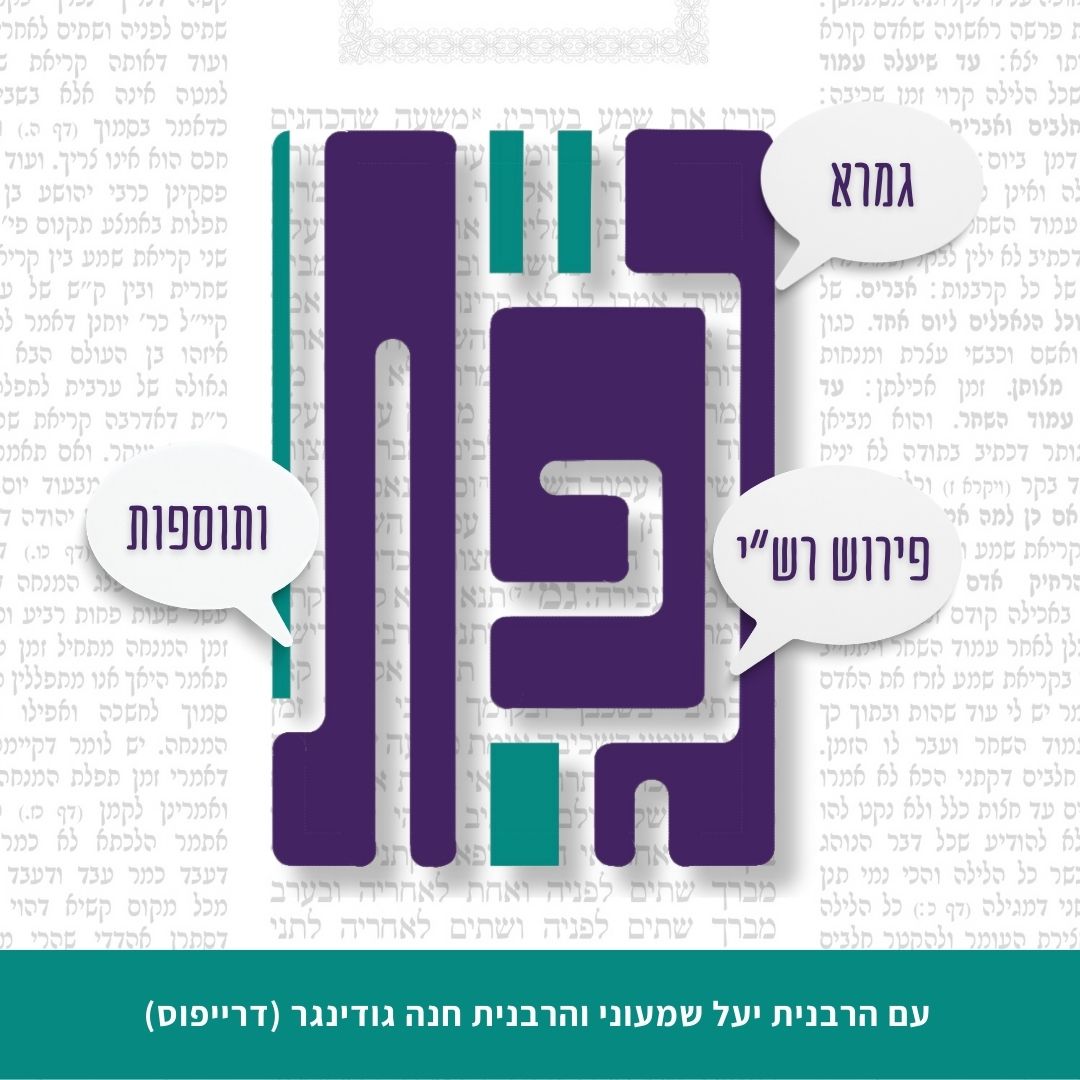סנהדרין צ
מַחְלוֹקֶת בְּעוֹקֵר הַגּוּף דַּעֲבוֹדָה זָרָה, וְקִיּוּם מִקְצָת וּבִיטּוּל מִקְצָת דַּעֲבוֹדָה זָרָה, דְּרַחֲמָנָא אָמַר: ״מִן הַדֶּרֶךְ״ – אֲפִילּוּ מִקְצָת הַדֶּרֶךְ.
The dispute is with regard to a prophet who prophesies to abolish the essence of the prohibition of idol worship, or a prophet who espouses fulfillment of part of the prohibition and nullification of part of the prohibition of idol worship, asserting that idol worship is permitted in certain circumstances, as the Merciful One says: “And that prophet…shall be put to death; because he has spoken perversion against the Lord…to divert you from the way on which the Lord your God commanded you to walk” (Deuteronomy 13:6). It may be inferred from this verse: If he diverts you even from part of the way. In these cases, Rabbi Shimon holds that he is executed by strangulation, and the Rabbis hold that he is executed by stoning.
אֲבָל עוֹקֵר הַגּוּף דִּשְׁאָר מִצְוֹת, דִּבְרֵי הַכֹּל בְּחֶנֶק. וְקִיּוּם מִקְצָת וּבִיטּוּל מִקְצָת דְּבִשְׁאָר מִצְוֹת, דִּבְרֵי הַכֹּל פָּטוּר.
But if a prophet abolishes the essence of the rest of the mitzvot, everyone agrees that he is executed by strangulation. And if the prophet espouses fulfillment of part and nullification of part of other mitzvot, everyone agrees that he is exempt from punishment. If a true prophet espouses temporary nullification of a specific mitzva, one must heed his words.
מֵתִיב רַב הַמְנוּנָא: ״לָלֶכֶת״ – זוֹ מִצְוַת עֲשֵׂה, ״בָּהּ״ – זוֹ מִצְוַת לֹא תַעֲשֶׂה. וְאִי סָלְקָא דַעְתָּךְ בַּעֲבוֹדָה זָרָה, עֲשֵׂה בַּעֲבוֹדָה זָרָה הֵיכִי מַשְׁכַּחַתְּ לַהּ? תַּרְגְּמַהּ רַב חִסְדָּא: ״וְנִתַּצְתֶּם״.
Rav Hamnuna raises an objection from a baraita that interprets the phrase in the verse “to divert you from the way on which the Lord your God commanded you to walk.” “To walk”; this is a reference to a positive mitzva. “On which”; this is a reference to a prohibition. And if it enters your mind that the verse is stated with regard to idol worship, how can you find a positive mitzva relating to idol worship? The Gemara answers: Rav Ḥisda interpreted that the positive mitzva referred to in the verse is: “And you shall smash their altars, and break their pillars, and burn their asherim in fire; and you shall hew down the graven images of their gods; and you shall destroy their name from that place” (Deuteronomy 12:3). A prophet is liable to receive the death penalty if he abolishes this mitzva.
רַב הַמְנוּנָא אָמַר: מַחֲלוֹקֶת בְּעוֹקֵר הַגּוּף, בֵּין בַּעֲבוֹדָה זָרָה בֵּין בִּשְׁאָר מִצְוֹת, וְקִיּוּם מִקְצָת וּבִיטּוּל מִקְצָת דַּעֲבוֹדָה זָרָה. דְּרַחֲמָנָא אָמַר: ״מִן הַדֶּרֶךְ״, אֲפִילּוּ מִקְצָת הַדֶּרֶךְ.
Although his objection was resolved, Rav Hamnuna suggests an alternative explanation of the dispute and says: The dispute is with regard to a prophet who prophesies to abolish the essence of a mitzva, whether it is with regard to idol worship or with regard to the rest of the mitzvot; or a prophet who espouses fulfillment of part of the prohibition and nullification of part of the prohibition of idol worship. This is as the Merciful One says: “From the way,” from which it may be inferred: If he diverts you from even part of the way. In these cases, Rabbi Shimon holds that he is executed by strangulation, and the Rabbis hold that he is executed by stoning.
אֲבָל קִיּוּם מִקְצָת וּבִיטּוּל מִקְצָת, דְּבִשְׁאָר מִצְוֹת – דִּבְרֵי הַכֹּל פָּטוּר.
But if the prophet espouses fulfillment of part and nullification of part of other mitzvot, everyone agrees that he is exempt from punishment, as that is within the prophet’s mandate.
תָּנוּ רַבָּנַן: הַמִּתְנַבֵּא לַעֲקוֹר דָּבָר מִן הַתּוֹרָה – חַיָּיב. לְקַיֵּים מִקְצָת וּלְבַטֵּל מִקְצָת – רַבִּי שִׁמְעוֹן פּוֹטֵר. וּבַעֲבוֹדָה זָרָה, אֲפִילּוּ אוֹמֵר: ״הַיּוֹם עִיבְדוּהָ וּלְמָחָר בַּטְּלוּהָ״ – דִּבְרֵי הַכֹּל חַיָּיב.
The Sages taught: In the case of one who prophesies to abolish a matter from the Torah, he is deemed a false prophet and is liable to be executed by strangulation. If he prophesies to fulfill part or to nullify part of a matter in the Torah, Rabbi Shimon deems him exempt from execution. And with regard to idol worship, even if he says: Worship it today and tomorrow nullify it, everyone agrees that he is liable.
אַבָּיֵי סָבַר לַהּ כְּרַב חִסְדָּא, וּמְתָרֵץ לַהּ כְּרַב חִסְדָּא. רָבָא סָבַר לַהּ כְּרַב הַמְנוּנָא, וּמְתָרֵץ לַהּ כְּרַב הַמְנוּנָא.
The Gemara comments: Abaye holds in accordance with the opinion of Rav Ḥisda and explains the baraita in accordance with the opinion of Rav Ḥisda. Rava holds in accordance with the opinion of Rav Hamnuna and explains the baraita in accordance with the opinion of Rav Hamnuna.
אַבָּיֵי סָבַר לַהּ כְּרַב חִסְדָּא, וּמְתָרֵץ לַהּ כְּרַב חִסְדָּא: הַמִּתְנַבֵּא לַעֲקוֹר דָּבָר מִן הַתּוֹרָה – דִּבְרֵי הַכֹּל בְּחֶנֶק. לְקַיֵּים מִקְצָת וּלְבַטֵּל מִקְצָת – רַבִּי שִׁמְעוֹן פּוֹטֵר, וְהוּא הַדִּין לְרַבָּנַן. וּבַעֲבוֹדָה זָרָה, אֲפִילּוּ אָמַר ״הַיּוֹם עִיבְדוּהָ וּלְמָחָר בַּטְּלוּהָ״ – חַיָּיב. מָר כִּדְאִית לֵיהּ, וּמַר כִּדְאִית לֵיהּ.
The Gemara elaborates: Abaye holds in accordance with the opinion of Rav Ḥisda and explains the baraita in accordance with the opinion of Rav Ḥisda. In the case of one who prophesies to abolish a matter from the Torah, everyone agrees that he is executed by strangulation. If he prophesies to fulfill part or to nullify part of a Torah law, Rabbi Shimon deems him exempt from execution, and the same is true of the Rabbis, who also hold that he is exempt. And with regard to idol worship, even if he says: Worship it today and nullify it tomorrow, everyone agrees that he is liable to be executed. What form of death penalty is imposed? One Sage, the Rabbis, rules in accordance with what he holds, i.e., stoning, and one Sage, Rabbi Shimon, rules in accordance with what he holds, i.e., strangulation.
רָבָא סָבַר לַהּ כְּרַב הַמְנוּנָא, וּמְתָרֵץ לַהּ כְּרַב הַמְנוּנָא: הַמִּתְנַבֵּא לַעֲקוֹר דָּבָר מִן הַתּוֹרָה, בֵּין בַּעֲבוֹדָה זָרָה בֵּין בִּשְׁאָר מִצְוֹת – חַיָּיב, מָר כִּדְאִית לֵיהּ וּמַר כִּדְאִית לֵיהּ. לְקַיֵּים מִקְצָת וּלְבַטֵּל מִקְצָת בִּשְׁאָר מִצְוֹת – רַבִּי שִׁמְעוֹן פּוֹטֵר, וְהוּא הַדִּין לְרַבָּנַן. וּבַעֲבוֹדָה זָרָה, אֲפִילּוּ אוֹמֵר ״הַיּוֹם עִיבְדוּהָ וּלְמָחָר בַּטְּלוּהָ״ – חַיָּיב, מָר כִּדְאִית לֵיהּ וּמַר כִּדְאִית לֵיהּ.
Rava holds in accordance with the opinion of Rav Hamnuna and explains the baraita in accordance with the opinion of Rav Hamnuna. In the case of one who prophesies to abolish a matter from the Torah, whether it is with regard to idol worship or with regard to the rest of the mitzvot, he is liable to be executed. What form of death penalty is imposed? One Sage, the Rabbis, rules in accordance with what he holds, i.e., stoning, and one Sage, Rabbi Shimon, rules in accordance with what he holds, i.e., strangulation. If he prophesies to fulfill part or to nullify part of a Torah law other than idol worship, Rabbi Shimon deems him exempt from execution, and the same is true of the Rabbis, who also hold that he is exempt. And with regard to idol worship, even if he says: Worship it today and nullify it tomorrow, everyone agrees that he is liable to be executed. What form of death penalty is imposed? One Sage, the Rabbis, rules in accordance with what he holds, i.e., stoning, and one Sage, Rabbi Shimon, rules in accordance with what he holds, i.e., strangulation.
אָמַר רַבִּי אֲבָהוּ אָמַר רַבִּי יוֹחָנָן: בַּכֹּל, אִם יֹאמַר לְךָ נָבִיא ״עֲבוֹר עַל דִּבְרֵי תוֹרָה״ – שְׁמַע לוֹ, חוּץ מֵעֲבוֹדָה זָרָה, שֶׁאֲפִילּוּ מַעֲמִיד לְךָ חַמָּה בְּאֶמְצַע הָרָקִיעַ – אַל תִּשְׁמַע לוֹ. תַּנְיָא, רַבִּי יוֹסֵי הַגְּלִילִי אוֹמֵר: הִגִּיעָה תּוֹרָה לְסוֹף דַּעְתָּהּ שֶׁל עֲבוֹדָה זָרָה, לְפִיכָךְ נָתְנָה תּוֹרָה מֶמְשָׁלָה בָּהּ, שֶׁאֲפִילּוּ מַעֲמִיד לְךָ חַמָּה בְּאֶמְצַע הָרָקִיעַ – אַל תִּשְׁמַע לוֹ.
Rabbi Abbahu says that Rabbi Yoḥanan says, in summary: With regard to all mitzvot, if a prophet will say to you: Violate matters of Torah on a provisional basis, heed him, except for idol worship, as even if he establishes that he is a bona fide prophet and stops the sun for you in the middle of the sky, do not heed him. It is taught in a baraita that Rabbi Yosei HaGelili says: The Torah ascertained the depth of the mentality of idol worship, the danger that it presents, and the lure of its ideology. Therefore, the Torah ascribed the false prophet with dominion in its regard, recognizing that a false prophet could perform wonders on the basis of idol worship. Therefore, even if the false prophet stops the sun for you in the middle of the sky, do not heed him.
תַּנְיָא, אָמַר רַבִּי עֲקִיבָא: חַס וְשָׁלוֹם שֶׁהַקָּדוֹשׁ בָּרוּךְ הוּא מַעֲמִיד חַמָּה לְעוֹבְרֵי רְצוֹנוֹ! אֶלָּא כְּגוֹן חֲנַנְיָה בֶּן עַזּוּר, שֶׁמִּתְּחִלָּתוֹ נְבִיא אֱמֶת, וּלְבַסּוֹף נְבִיא שֶׁקֶר.
It is taught in a baraita that Rabbi Akiva says: Heaven forfend that the Holy One, Blessed be He, would stop the sun for those who violate His will. A false prophet could never perform an actual miracle. Rather, this warning is relevant only in the case of a prophet, for example, Hananiah, son of Azzur, whose origin was as a true prophet, at which point he could perform miracles; and ultimately, he was a false prophet. Therefore, although he had already been established as a true prophet, once he espouses idol worship, it is clear that he is a false prophet.
וְזוֹמְמֵי בַּת כֹּהֵן – מְנָהָנֵי מִילֵּי? אָמַר רַב אַחָא בְּרֵיהּ דְּרַב אִיקָא: דְּתַנְיָא, רַבִּי יוֹסֵי אוֹמֵר: מָה תַּלְמוּד לוֹמַר ״וַעֲשִׂיתֶם לוֹ כַּאֲשֶׁר זָמַם לַעֲשׂוֹת לְאָחִיו״? לְפִי שֶׁכׇּל הַמְזוּמָּמִין שֶׁבַּתּוֹרָה, זוֹמְמֵיהֶן וּבוֹעֲלֵיהֶן כַּיּוֹצֵא בָּהֶן.
§ The mishna teaches: And conspiring witnesses who testified that the daughter of a priest and her paramour committed adultery are executed by strangulation. The Gemara asks: From where are these matters derived? Rav Aḥa, son of Rav Ika, says: It is derived as it is taught in a baraita that Rabbi Yosei says: What is the meaning when the verse states with regard to conspiring witnesses: “And you shall do to him as he conspired to do to his brother” (Deuteronomy 19:19)? The verse is formulated in this manner due to the fact that in all cases involving those rendered conspiring witnesses who are mentioned in the Torah, e.g., forbidden relatives, the sentences of their conspiring witnesses and their paramours are similar to their own sentences, and the witnesses are executed by strangulation.
בַּת כֹּהֵן הִיא בִּשְׂרֵיפָה, וְאֵין בּוֹעֲלָהּ בִּשְׂרֵיפָה. זוֹמְמִין – אֵינִי יוֹדֵעַ אִם לוֹ הוּקְשׁוּ, אִם לָהּ הוּקְשׁוּ. כְּשֶׁהוּא אוֹמֵר ״לַעֲשׂוֹת לְאָחִיו״ – לְאָחִיו וְלֹא לַאֲחוֹתוֹ.
The baraita continues: The daughter of a priest is an exception, as she is executed by burning if she commits adultery, and her paramour is not executed by burning. With regard to conspiring witnesses who testified that they committed adultery, I do not know if the witnesses are likened to the paramour or if they are likened to the daughter of the priest, in terms of punishment. When the verse states with regard to conspiring witnesses: “As he conspired to do to his brother,” one infers: As he conspired to do to his brother, but not as he conspired to do to his sister. The execution of the conspiring witnesses is likened to the execution of the paramour, who is executed by strangulation, and is not likened to the execution of the daughter of the priest, who is executed by burning.
הֲדַרַן עֲלָךְ אֵלּוּ הֵן הַנֶּחְנָקִין
מַתְנִי׳ כׇּל יִשְׂרָאֵל יֵשׁ לָהֶם חֵלֶק לָעוֹלָם הַבָּא, שֶׁנֶּאֱמַר: ״וְעַמֵּךְ כֻּלָּם צַדִּיקִים לְעוֹלָם יִירְשׁוּ אָרֶץ נֵצֶר מַטָּעַי מַעֲשֵׂה יָדַי לְהִתְפָּאֵר״. וְאֵלּוּ שֶׁאֵין לָהֶם חֵלֶק לָעוֹלָם הַבָּא: הָאוֹמֵר אֵין תְּחִיַּית הַמֵּתִים מִן הַתּוֹרָה, וְאֵין תּוֹרָה מִן הַשָּׁמַיִם, וְאֶפִּיקוֹרוֹס.
MISHNA: All of the Jewish people, even sinners and those who are liable to be executed with a court-imposed death penalty, have a share in the World-to-Come, as it is stated: “And your people also shall be all righteous, they shall inherit the land forever; the branch of My planting, the work of My hands, for My name to be glorified” (Isaiah 60:21). And these are the exceptions, the people who have no share in the World-to-Come, even when they fulfilled many mitzvot: One who says: There is no resurrection of the dead derived from the Torah, and one who says: The Torah did not originate from Heaven, and an epikoros, who treats Torah scholars and the Torah that they teach with contempt.
רַבִּי עֲקִיבָא אוֹמֵר: אַף הַקּוֹרֵא בַּסְּפָרִים הַחִיצוֹנִים, וְהַלּוֹחֵשׁ עַל הַמַּכָּה וְאוֹמֵר ״כׇּל הַמַּחֲלָה אֲשֶׁר שַׂמְתִּי בְמִצְרַיִם לֹא אָשִׂים עָלֶיךָ כִּי אֲנִי ה׳ רֹפְאֶךָ״. אַבָּא שָׁאוּל אוֹמֵר: אַף הַהוֹגֶה אֶת הַשֵּׁם בְּאוֹתִיּוֹתָיו.
Rabbi Akiva says: Also included in the exceptions are one who reads external literature, and one who whispers invocations over a wound and says as an invocation for healing: “Every illness that I placed upon Egypt I will not place upon you, for I am the Lord, your Healer” (Exodus 15:26). By doing so, he shows contempt for the sanctity of the name of God and therefore has no share in the World-to-Come. Abba Shaul says: Also included in the exceptions is one who pronounces the ineffable name of God as it is written, with its letters.
שְׁלֹשָׁה מְלָכִים וְאַרְבָּעָה הֶדְיוֹטוֹת אֵין לָהֶן חֵלֶק לָעוֹלָם הַבָּא. שְׁלֹשָׁה מְלָכִים: יָרׇבְעָם, אַחְאָב, וּמְנַשֶּׁה. רַבִּי יְהוּדָה אוֹמֵר: מְנַשֶּׁה יֵשׁ לוֹ חֵלֶק לָעוֹלָם הַבָּא, שֶׁנֶּאֱמַר ״וַיִּתְפַּלֵּל אֵלָיו וַיִּשְׁמַע תְּחִנָּתוֹ וַיְשִׁיבֵהוּ יְרוּשָׁלִַים לְמַלְכוּתוֹ״. אָמְרוּ לוֹ: לְמַלְכוּתוֹ הֱשִׁיבוֹ וְלֹא לְחַיֵּי הָעוֹלָם הַבָּא הֱשִׁיבוֹ. אַרְבָּעָה הֶדְיוֹטוֹת: בִּלְעָם, וְדוֹאֵג, וַאֲחִיתוֹפֶל, וְגֵחֲזִי.
Three prominent kings mentioned in the Bible and four prominent commoners who are described in the Bible as men of great wisdom have no share in the World-to-Come. The three kings are: Jeroboam, son of Nebat, and Ahab, both of whom were kings of Israel, and Manasseh, king of Judea. Rabbi Yehuda says: Manasseh has a share in the World-to-Come, as it is stated concerning Manasseh: “And he prayed to Him, and He received his entreaty, and heard his supplication and brought him back to Jerusalem unto his kingdom” (II Chronicles 33:13), indicating that he repented wholeheartedly and effectively. The Rabbis said to Rabbi Yehuda: He regretted his actions, and his repentance was effective to the extent that God restored him to his kingdom, but God did not restore him to his share in life in the World-to-Come. The four commoners are: Balaam, son of Beor; Doeg the Edomite; Ahithophel; and Gehazi.
גְּמָ׳ וְכׇל כָּךְ לָמָּה? תָּנָא: הוּא כָּפַר בִּתְחִיַּית הַמֵּתִים, לְפִיכָךְ לֹא יִהְיֶה לוֹ חֵלֶק בִּתְחִיַּית הַמֵּתִים, שֶׁכׇּל מִדּוֹתָיו שֶׁל הַקָּדוֹשׁ בָּרוּךְ הוּא מִדָּה כְּנֶגֶד מִדָּה.
GEMARA: And why is one punished to that extent for saying that there is no resurrection of the dead derived from the Torah? The Sages taught in a baraita: He denied the resurrection of the dead; therefore he will not have a share in the resurrection of the dead, as all measures dispensed by the Holy One, Blessed be He, to His people are dispensed measure for measure, i.e., the response is commensurate with the action.
דְּאָמַר רַבִּי שְׁמוּאֵל בַּר נַחְמָנִי אָמַר רַבִּי יוֹנָתָן: מִנַּיִין שֶׁכׇּל מִדּוֹתָיו שֶׁל הַקָּדוֹשׁ בָּרוּךְ הוּא מִדָּה כְּנֶגֶד מִדָּה? שֶׁנֶּאֱמַר: ״וַיֹּאמֶר אֱלִישָׁע שִׁמְעוּ דְּבַר ה׳ [וְגוֹ׳] כָּעֵת מָחָר סְאָה סֹלֶת בְּשֶׁקֶל וְסָאתַיִם שְׂעֹרִים בְּשֶׁקֶל בְּשַׁעַר שֹׁמְרוֹן״. וּכְתִיב: ״וַיַּעַן הַשָּׁלִישׁ אֲשֶׁר הַמֶּלֶךְ נִשְׁעָן עַל יָדוֹ אֶת אִישׁ הָאֱלֹהִים וַיֹּאמַר הִנֵּה ה׳ עוֹשֶׂה אֲרֻבּוֹת בַּשָּׁמַיִם הֲיִהְיֶה הַדָּבָר הַזֶּה וַיֹּאמֶר הִנְּךָ רֹאֶה בְּעֵינֶיךָ וּמִשָּׁם לֹא תֹאכֵל״.
This is based on that which Rabbi Shmuel bar Naḥmani says that Rabbi Yonatan says: From where is it derived that all measures dispensed by the Holy One, Blessed be He, are dispensed measure for measure? It is derived from a verse, as it is stated concerning the siege of Jerusalem: “And Elisha said: Hear the word of the Lord; so said the Lord: Tomorrow at this time one se’a of fine flour will be sold for one shekel and two se’a of barley for one shekel in the gate of Samaria” (II Kings 7:1). And it is written: “And the officer on whose hand the king leaned answered the man of God and said: Will the Lord make windows in heaven? Might this thing be? And he said: You shall see it with your eyes, but you shall not eat from there” (II Kings 7:2).
וּכְתִיב: ״וַיְהִי לוֹ כֵּן וַיִּרְמְסוּ אֹתוֹ הָעָם בַּשַּׁעַר וַיָּמֹת״. וְדִילְמָא קִלְלַת אֱלִישָׁע גְּרַמָה לֵיהּ? דְּאָמַר רַב יְהוּדָה אָמַר רַב: קִלְלַת חָכָם, אֲפִילּוּ עַל חִנָּם הִיא בָּאָה. אִם כֵּן, לִכְתּוֹב קְרָא: ״וַיִּרְמְסוּהוּ וַיָּמֹת״. מַאי ״בַּשַּׁעַר״? עַל עִסְקֵי שַׁעַר.
And it is written: “And it was for him so, and the people trampled him in the gate, and he died” (II Kings 7:20). The Gemara challenges: Perhaps it was the curse of Elisha that caused the officer to die in that manner, not the principle of punishment measure for measure for his lack of belief, as Rav Yehuda says that Rav says: The curse of a Sage, even if baseless, comes to be fulfilled? This is all the more so true concerning the curse of Elisha, which was warranted. The Gemara answers: If so, let the verse write: And they trampled him and he died. What does the term “in the gate” serve to teach? It teaches that he died over matters relating to the gate [sha’ar]. It was for the cynical dismissal of the prophecy of Elisha that the officer voiced at the city gate that he was punished measure for measure and was trampled at the city gate.
אָמַר רַבִּי יוֹחָנָן: מִנַּיִין לִתְחִיַּית הַמֵּתִים מִן הַתּוֹרָה? שֶׁנֶּאֱמַר: ״וּנְתַתֶּם מִמֶּנּוּ [אֶת] תְּרוּמַת ה׳ לְאַהֲרֹן הַכֹּהֵן״. וְכִי אַהֲרֹן לְעוֹלָם קַיָּים? וַהֲלֹא לֹא נִכְנַס לְאֶרֶץ יִשְׂרָאֵל שֶׁנּוֹתְנִין לוֹ תְּרוּמָה! אֶלָּא מְלַמֵּד שֶׁעָתִיד לִחְיוֹת, וְיִשְׂרָאֵל נוֹתְנִין לוֹ תְּרוּמָה. מִכָּאן לִתְחִיַּית הַמֵּתִים מִן הַתּוֹרָה.
§ Rabbi Yoḥanan says: From where is the resurrection of the dead derived from the Torah? It is derived from this verse, as it is stated with regard to teruma of the tithe: “And you shall give the teruma of the Lord to Aaron the priest” (Numbers 18:28). And does Aaron exist forever so that one can fulfill the mitzva by giving him the teruma of the tithe? But is it not so that Aaron did not enter Eretz Yisrael, the only place where the people would give him teruma? Rather, the verse teaches that Aaron is destined to live in the future and the Jewish people will give him teruma. From here it is derived that the resurrection of the dead is from the Torah.
דְּבֵי רַבִּי יִשְׁמָעֵאל תָּנָא: ״לְאַהֲרֹן״ – כְּאַהֲרֹן, מָה אַהֲרֹן חָבֵר – אַף בָּנָיו חֲבֵרִים.
The school of Rabbi Yishmael taught a different derivation from this verse. From the term “to Aaron” one derives that teruma must be given to a priest like Aaron; just as Aaron is one devoted to the meticulous observance of mitzvot, particularly those relating to ritual purity, teruma, and tithes [ḥaver], so too one gives teruma to his descendants who are ḥaverim.
אָמַר רַבִּי שְׁמוּאֵל בַּר נַחְמָנִי אָמַר רַבִּי יוֹנָתָן: מִנַּיִין שֶׁאֵין נוֹתְנִין תְּרוּמָה לְכֹהֵן עַם הָאָרֶץ? שֶׁנֶּאֱמַר: ״וַיֹּאמֶר לָעָם לְיוֹשְׁבֵי יְרוּשָׁלִַים לָתֵת מְנָת הַכֹּהֲנִים וְהַלְוִיִּם לְמַעַן יֶחֶזְקוּ בְּתוֹרַת ה׳״. כׇּל הַמַּחְזִיק בְּתוֹרַת ה׳ – יֵשׁ לוֹ מְנָת, וְשֶׁאֵינוֹ מַחְזִיק בְּתוֹרַת ה׳ – אֵין לוֹ מְנָת.
Rabbi Shmuel bar Naḥmani says that Rabbi Yonatan says: From where is it derived that one does not give teruma to a priest who is an am ha’aretz? It is derived from a verse, as it is stated: “And he commanded the people who dwelled in Jerusalem to give the portion of the priests and of the Levites, so that they may firmly adhere to the Torah of the Lord” (II Chronicles 31:4). Everyone who firmly adheres to the Torah of the Lord has a portion, and anyone who does not firmly adhere to the Torah of the Lord does not have a portion.
אָמַר רַב אַחָא בַּר אַדָּא אָמַר רַב יְהוּדָה: כׇּל הַנּוֹתֵן תְּרוּמָה לְכֹהֵן עַם הָאָרֶץ, כְּאִילּוּ נוֹתְנָהּ לִפְנֵי אֲרִי. מָה אֲרִי – סָפֵק דּוֹרֵס וְאוֹכֵל, סָפֵק אֵינוֹ דּוֹרֵס וְאוֹכֵל, אַף כֹּהֵן עַם הָאָרֶץ – סָפֵק אוֹכְלָהּ בְּטׇהֳרָה, סָפֵק אוֹכְלָהּ בְּטוּמְאָה.
Rav Aḥa bar Adda says that Rav Yehuda says: With regard to anyone who gives teruma to a priest who is an am ha’aretz, it is as though he placed the teruma before a lion. Just as with regard to a lion, there is uncertainty whether it will maul its prey and eat it, and uncertainty whether it will not maul its prey and instead eat it alive, so too, with regard to a priest who is an am ha’aretz to whom one gives teruma, there is uncertainty whether he will eat it in purity, and there is uncertainty whether he will eat it in impurity, thereby violating a prohibition by Torah law.
רַבִּי יוֹחָנָן אָמַר: אַף גּוֹרֵם לוֹ מִיתָה, שֶׁנֶּאֱמַר ״וּמֵתוּ בוֹ כִּי יְחַלְּלֻהוּ״. דְּבֵי רַבִּי אֱלִיעֶזֶר בֶּן יַעֲקֹב תָּנָא: אַף מַשִּׂיאוֹ עֲוֹן אַשְׁמָה, שֶׁנֶּאֱמַר ״וְהִשִּׂיאוּ אוֹתָם עֲוֹן אַשְׁמָה בְּאׇכְלָם אֶת קׇדְשֵׁיהֶם״.
Rabbi Yoḥanan says: One who gives teruma to a priest who is an am ha’aretz even causes the priest’s death, as it is stated with regard to teruma: “And die therefore if they profane it” (Leviticus 22:9). Priests who partake of teruma in a state of ritual impurity profane it and are liable to be punished with death at the hand of Heaven. The school of Rabbi Eliezer ben Ya’akov taught: By giving teruma to a priest who is an am ha’aretz, one also brings upon him a sin of guilt, i.e., a sin that will lead to additional sins, as it is stated: “And so bring upon them a sin of guilt when they eat their sacred items” (Leviticus 22:16).
תַּנְיָא, רַבִּי סִימַאי אוֹמֵר: מִנַּיִין לִתְחִיַּית הַמֵּתִים מִן הַתּוֹרָה? שֶׁנֶּאֱמַר: ״וְגַם הֲקִמֹתִי אֶת בְּרִיתִי אִתָּם לָתֵת לָהֶם אֶת אֶרֶץ כְּנַעַן״. ״לָכֶם״ לֹא נֶאֱמַר, אֶלָּא ״לָהֶם״. מִכָּאן לִתְחִיַּית הַמֵּתִים מִן הַתּוֹרָה.
§ It is taught in a baraita that Rabbi Simai says: From where is resurrection of the dead derived from the Torah? It is derived from a verse, as it is stated with regard to the Patriarchs: “I have also established My covenant with them to give to them the land of Canaan” (Exodus 6:4). The phrase: To give to you the land of Canaan, is not stated, as the meaning of the verse is not that God fulfilled the covenant with the Patriarchs when he gave the land of Canaan to the children of Israel; rather, it is stated: “To give to them the land of Canaan,” meaning to the Patriarchs themselves. From here is it derived that the resurrection of the dead is from the Torah, as in the future the Patriarchs will come to life and inherit the land.
(צֶדֶ״ק גַּ״ם גֶּשֶׁ״ם קָ״ם סִימָן) שָׁאֲלוּ צַדּוּקִים אֶת רַבָּן גַּמְלִיאֵל: מִנַּיִין שֶׁהַקָּדוֹשׁ בָּרוּךְ הוּא מְחַיֶּיה מֵתִים? אָמַר לָהֶם: מִן הַתּוֹרָה, וּמִן הַנְּבִיאִים, וּמִן הַכְּתוּבִים. וְלֹא קִיבְּלוּ מִמֶּנּוּ.
The Gemara records a mnemonic for those cited in the upcoming discussion: Tzadi, dalet, kuf; gimmel, mem; gimmel, shin, mem; kuf, mem. Heretics asked Rabban Gamliel: From where is it derived that the Holy One, Blessed be He, revives the dead? Rabban Gamliel said to them that this matter can be proven from the Torah, from the Prophets, and from Writings, but they did not accept the proofs from him.
מִן הַתּוֹרָה, דִּכְתִיב: ״וַיֹּאמֶר ה׳ אֶל מֹשֶׁה הִנְּךָ שֹׁכֵב עִם אֲבֹתֶיךָ וְקָם״. אָמְרוּ לוֹ: וְדִילְמָא ״וְקָם הָעָם הַזֶּה וְזָנָה״?
The proof from the Torah is as it is written: “And the Lord said to Moses, behold, you shall lie with your fathers and arise” (Deuteronomy 31:16). The heretics said to him: But perhaps the verse should be divided in a different manner, and it should be read: “Behold, you shall lie with your fathers, and this people will arise and stray after the foreign gods of the land.”
מִן הַנְּבִיאִים, דִּכְתִיב: ״יִחְיוּ מֵתֶיךָ נְבֵלָתִי יְקוּמוּן הָקִיצוּ וְרַנְּנוּ שֹׁכְנֵי עָפָר כִּי טַל אוֹרֹת טַלֶּךָ וָאָרֶץ רְפָאִים תַּפִּיל״. וְדִילְמָא מֵתִים שֶׁהֶחְיָה יְחֶזְקֵאל?
The proof from the Prophets is as it is written: “Your dead shall live, my corpse shall arise. Awake and sing, you that dwell in the dust, for your dew is as the dew of vegetation, and the land shall cast out the dead” (Isaiah 26:19). The heretics said to him: But perhaps the prophecy was fulfilled with the dead that Ezekiel revived. No proof may be cited from that verse with regard to any future resurrection.
מִן הַכְּתוּבִים, דִּכְתִיב: ״וְחִכֵּךְ כְּיֵין הַטּוֹב הוֹלֵךְ לְדוֹדִי לְמֵישָׁרִים דּוֹבֵב שִׂפְתֵי יְשֵׁנִים״. וְדִילְמָא רַחוֹשֵׁי מְרַחֲשָׁן שִׂפְוָותֵיהּ בְּעָלְמָא? כְּרַבִּי יוֹחָנָן, דְּאָמַר רַבִּי יוֹחָנָן מִשּׁוּם רַבִּי שִׁמְעוֹן בֶּן יְהוֹצָדָק: כׇּל מִי שֶׁנֶּאֶמְרָה הֲלָכָה בִּשְׁמוֹ בְּעוֹלָם הַזֶּה, שִׂפְתוֹתָיו דּוֹבְבוֹת בַּקֶּבֶר, שֶׁנֶּאֱמַר: ״דּוֹבֵב שִׂפְתֵי יְשֵׁנִים״.
The proof from Writings is as it is written: “And your palate is like the best wine that glides down smoothly for my beloved, moving gently the lips of those that sleep” (Song of Songs 7:10), indicating that the dead will ultimately rise and speak. The heretics said to him: But perhaps merely their lips will move, in accordance with the opinion of Rabbi Yoḥanan, as Rabbi Yoḥanan says in the name of Rabbi Shimon ben Yehotzadak: Anyone in whose name a halakha is stated in this world, his lips move in the grave as if repeating the statement cited in his name, as it is stated: “Moving gently the lips of those that sleep.” No proof may be cited from that verse, as it is unrelated to resurrection.
עַד שֶׁאָמַר לָהֶם מִקְרָא זֶה: ״אֲשֶׁר נִשְׁבַּע ה׳ לַאֲבֹתֵיכֶם לָתֵת לָהֶם״. ״לָכֶם״ לֹא נֶאֱמַר, אֶלָּא ״לָהֶם״. מִיכָּן לִתְחִיַּית הַמֵּתִים מִן הַתּוֹרָה.
This exchange continued until Rabban Gamliel stated to them this verse: “That your days may be multiplied, and the days of your children, upon the land that the Lord took an oath to your forefathers to give them” (Deuteronomy 11:21). The phrase: To give you, is not stated; rather, it is stated: “To give them,” to the Patriarchs themselves, as in the future the Patriarchs will come to life and inherit the land. From here resurrection of the dead is derived from the Torah.
וְיֵשׁ אוֹמְרִים: מִן הַמִּקְרָא הַזֶּה אָמַר לָהֶם, ״וְאַתֶּם הַדְּבֵקִים בַּה׳ אֱלֹהֵיכֶם חַיִּים כֻּלְּכֶם הַיּוֹם״. פְּשִׁיטָא דְּחַיִּים כֻּלְּכֶם הַיּוֹם! אֶלָּא, אֲפִילּוּ בְּיוֹם שֶׁכׇּל הָעוֹלָם כּוּלָּם מֵתִים – אַתֶּם חַיִּים. מָה הַיּוֹם כּוּלְּכֶם קַיָּימִין, אַף לָעוֹלָם הַבָּא כּוּלְּכֶם קַיָּימִין.
And there are those who say that it is from this following verse that he said to them his ultimate proof: “But you who cleave to the Lord your God every one of you is alive this day” (Deuteronomy 4:4). Wasn’t it obvious with regard to the children of Israel whom God was addressing, that “every one of you is alive this day”? Rather, the meaning of the verse is: Even on the day when everyone is dead you will live; just as today every one of you is alive, so too, in the World-to-Come every one of you will be alive.
שָׁאֲלוּ רוֹמִיִּים אֶת רַבִּי יְהוֹשֻׁעַ בֶּן חֲנַנְיָה: מִנַּיִין שֶׁהַקָּדוֹשׁ בָּרוּךְ הוּא מְחַיֵּה מֵתִים, וְיוֹדֵעַ מַה שֶּׁעָתִיד לִהְיוֹת? אֲמַר לְהוּ: תַּרְוַויְיהוּ מִן הַמִּקְרָא הַזֶּה, שֶׁנֶּאֱמַר: ״וַיֹּאמֶר ה׳ אֶל מֹשֶׁה הִנְּךָ שֹׁכֵב עִם אֲבֹתֶיךָ וְקָם הָעָם הַזֶּה וְזָנָה״.
The Romans asked Rabbi Yehoshua ben Ḥananya: From where is it derived that the Holy One, Blessed be He, revives the dead, and from where is it derived that He knows what is destined to be? Rabbi Yehoshua ben Ḥananya said to them: Both of those matters are derived from this verse, as it is stated: “And the Lord said to Moses, Behold, you shall lie with your fathers and arise; this people will go astray” (Deuteronomy 31:16). This indicates that Moses will die and then arise from the dead and that the Holy One, Blessed be He, knows what the children of Israel are destined to do.
וְדִילְמָא ״וְקָם הָעָם הַזֶּה וְזָנָה״? אֲמַר לְהוּ: נְקוּטוּ מִיהָא פַּלְגָא בִּידַיְיכוּ, דְּיוֹדֵעַ מַה שֶּׁעָתִיד לִהְיוֹת. אִיתְּמַר נָמֵי, אָמַר רַבִּי יוֹחָנָן מִשּׁוּם רַבִּי שִׁמְעוֹן בֶּן יוֹחַאי: מִנַּיִין שֶׁהַקָּדוֹשׁ בָּרוּךְ הוּא מְחַיֵּה מֵתִים וְיוֹדֵעַ מַה שֶּׁעָתִיד לִהְיוֹת? שֶׁנֶּאֱמַר ״הִנְּךָ שֹׁכֵב עִם אֲבֹתֶיךָ וְקָם וְגוֹ׳״.
The Romans asked: But perhaps the verse should be divided in a different manner, and it should be read: “Behold, you shall lie with your fathers and this people will arise and go astray after the foreign gods of the land.” Rabbi Yehoshua ben Ḥananya said to them: Take at least a response to half of your question in your hands from that verse, that God knows what is destined to be. The Gemara comments: It was also stated on a similar note by an amora citing a tanna, as Rabbi Yoḥanan says in the name of Rabbi Shimon ben Yoḥai: From where is it derived that the Holy One, Blessed be He, revives the dead, and from where is it derived that He knows what is destined to be? It is derived from a verse, as it is stated: “Behold, you shall lie with your fathers and arise.”
תַּנְיָא: אָמַר רַבִּי אֱלִיעֶזֶר בְּרַבִּי יוֹסֵי: בְּדָבָר זֶה זִיַּיפְתִּי סִפְרֵי כוּתִים, שֶׁהָיוּ אוֹמְרִים אֵין תְּחִיַּית הַמֵּתִים מִן הַתּוֹרָה. אָמַרְתִּי לָהֶן: זִיַּיפְתֶּם תּוֹרַתְכֶם וְלֹא הֶעֱלִיתֶם בְּיֶדְכֶם כְּלוּם, שֶׁאַתֶּם אוֹמְרִים אֵין תְּחִיַּית הַמֵּתִים מִן הַתּוֹרָה. הֲרֵי הוּא אוֹמֵר ״הִכָּרֵת תִּכָּרֵת הַנֶּפֶשׁ הַהִיא עֲוֹנָהּ בָּהּ״. ״הִכָּרֵת תִּכָּרֵת״ – בָּעוֹלָם הַזֶּה, ״עֲוֹנָהּ בָּהּ״ – לְאֵימַת? לָאו לָעוֹלָם הַבָּא?
It is taught in a baraita that Rabbi Eliezer, son of Rabbi Yosei, says: With this following matter, I refuted the books of the Samaritans, as they would say that there is no source for the resurrection of the dead from the Torah. I said to them: You falsified your torah and you accomplished nothing, as you say there is no source for the resurrection of the dead from the Torah, and the Torah states: “That soul shall be excised; his iniquity shall be upon him” (Numbers 15:31). You interpret the phrase “that soul shall be excised” to mean that a sinner will be punished with death in this world. If so, with regard to the phrase “his iniquity shall be upon him,” for when is that destined to be? Is it not for the World-to-Come, i.e., the world as it will exist after the resurrection of the dead? Apparently, there is a World-to-Come and there is an allusion to it in the Torah.
אֲמַר לֵיהּ רַב פָּפָּא לְאַבָּיֵי: וְלֵימָא לְהוּ תַּרְוַיְיהוּ מֵ״הִכָּרֵת תִּכָּרֵת״! אִינְהוּ הֲווֹ אָמְרִי לֵיהּ: דִּבְּרָה תּוֹרָה כִּלְשׁוֹן בְּנֵי אָדָם.
Rav Pappa said to Abaye: And let Rabbi Eliezer, son of Rabbi Yosei, say to the Samaritans that both of those matters can be derived from the phrase “shall be excised [hikkaret tikkaret].” “Hikkaret” indicates that the sinner is excised from this world, and “tikkaret” indicates that the sinner is excised from the World-to-Come. Abaye answered: Rabbi Eliezer, son of Rabbi Yosei, preferred not to cite proof from the compound verb, because the Samaritans would say: The Torah spoke in the language of people, and the compound verb is merely a stylistic flourish.
כְּתַנָּאֵי: ״הִכָּרֵת תִּכָּרֵת״ – ״הִכָּרֵת״ בָּעוֹלָם הַזֶּה, ״תִּכָּרֵת״ לָעוֹלָם הַבָּא, דִּבְרֵי רַבִּי עֲקִיבָא. אָמַר לוֹ רַבִּי יִשְׁמָעֵאל: וַהֲלֹא כְּבָר נֶאֱמַר ״אֶת ה׳ הוּא מְגַדֵּף וְנִכְרְתָה״, וְכִי שְׁלֹשָׁה עוֹלָמִים יֵשׁ? אֶלָּא ״וְנִכְרְתָה״ בָּעוֹלָם הַזֶּה, ״הִכָּרֵת״ לָעוֹלָם הַבָּא, ״הִכָּרֵת תִּכָּרֵת״ – דִּבְּרָה תוֹרָה כִלְשׁוֹן בְּנֵי אָדָם.
The Gemara notes: These derivations of Rabbi Eliezer and Rav Pappa are parallel to a dispute between tanna’im with regard to “hikkaret tikkaret,” as follows: “Hikkaret” indicates that the sinner is excised in this world, and “tikkaret” indicates that the sinner is excised in the World-to-Come; this is the statement of Rabbi Akiva. Rabbi Yishmael said to him: Isn’t it already stated in the previous verse: “That person that blasphemes the Lord, that soul shall be excised [venikhreta]” (Numbers 15:30), and are there three worlds from which the sinner is excised? Rather, from the term “venikhreta” it is derived that the sinner is excised in this world, from “hikkaret” it is derived that the sinner is excised in the World-to-Come, and from the compound verb “hikkaret tikkaret” nothing is derived, as the Torah spoke in the language of people.
בֵּין רַבִּי יִשְׁמָעֵאל וּבֵין רַבִּי עֲקִיבָא, ״עֲוֹנָהּ בָּהּ״ מַאי עָבְדִי בֵּיהּ? לְכִדְתַנְיָא: יָכוֹל אֲפִילּוּ עָשָׂה תְּשׁוּבָה? תַּלְמוּד לוֹמַר: ״עֲוֹנָהּ בָּהּ״. לֹא אָמַרְתִּי אֶלָּא בִּזְמַן שֶׁעֲוֹנָהּ בָּהּ.
The Gemara asks: According to both Rabbi Yishmael and Rabbi Akiva, what do they do with, i.e., what do they derive from, the phrase “His iniquity shall be upon him”? The Gemara answers: That phrase is necessary for that derivation which is taught in a baraita: One might have thought that the sinner is excised even after he repented. Therefore, the verse states: “His iniquity shall be upon him.” God states: I said that the sinner will be excised only when his iniquity remains upon him.
שָׁאֲלָה קְלֵיאוֹפַּטְרָא מַלְכְּתָא אֶת רַבִּי מֵאִיר. אָמְרָה: יָדַעְנָא דְּחָיִי שָׁכְבֵי, דִּכְתִיב ״וְיָצִיצוּ מֵעִיר כְּעֵשֶׂב הָאָרֶץ״. אֶלָּא כְּשֶׁהֵן עוֹמְדִין, עוֹמְדִין עֲרוּמִין אוֹ בִּלְבוּשֵׁיהֶן עוֹמְדִין? אֲמַר לַהּ: קַל וָחוֹמֶר מֵחִיטָּה. וּמָה חִיטָּה שֶׁנִּקְבְּרָה עֲרוּמָּה יוֹצְאָה בְּכַמָּה לְבוּשִׁין, צַדִּיקִים שֶׁנִּקְבָּרִים בִּלְבוּשֵׁיהֶן – עַל אַחַת כַּמָּה וְכַמָּה.
§ The Gemara relates: Queen Cleopatra asked Rabbi Meir a question. She said: I know that the dead will live, as it is written: “And may they blossom out of the city like grass of the earth” (Psalms 72:16). Just as grass grows, so too, the dead will come to life. But when they arise, will they arise naked or will they arise with their garments? Rabbi Meir said to her: It is derived a fortiori from wheat. If wheat, which is buried naked, meaning that the kernel is sown without the chaff, emerges with several garments of chaff, all the more so will the righteous, who are buried with their garments, arise with their garments.
אֲמַר לֵיהּ קֵיסָר לְרַבָּן גַּמְלִיאֵל: אָמְרִיתוּ דְּשָׁכְבֵי חָיִי. הָא הָווּ עַפְרָא, וְעַפְרָא מִי קָא חָיֵי?!
The Roman emperor said to Rabban Gamliel: You say that the dead will live. Aren’t they dust? And does dust come to life?


